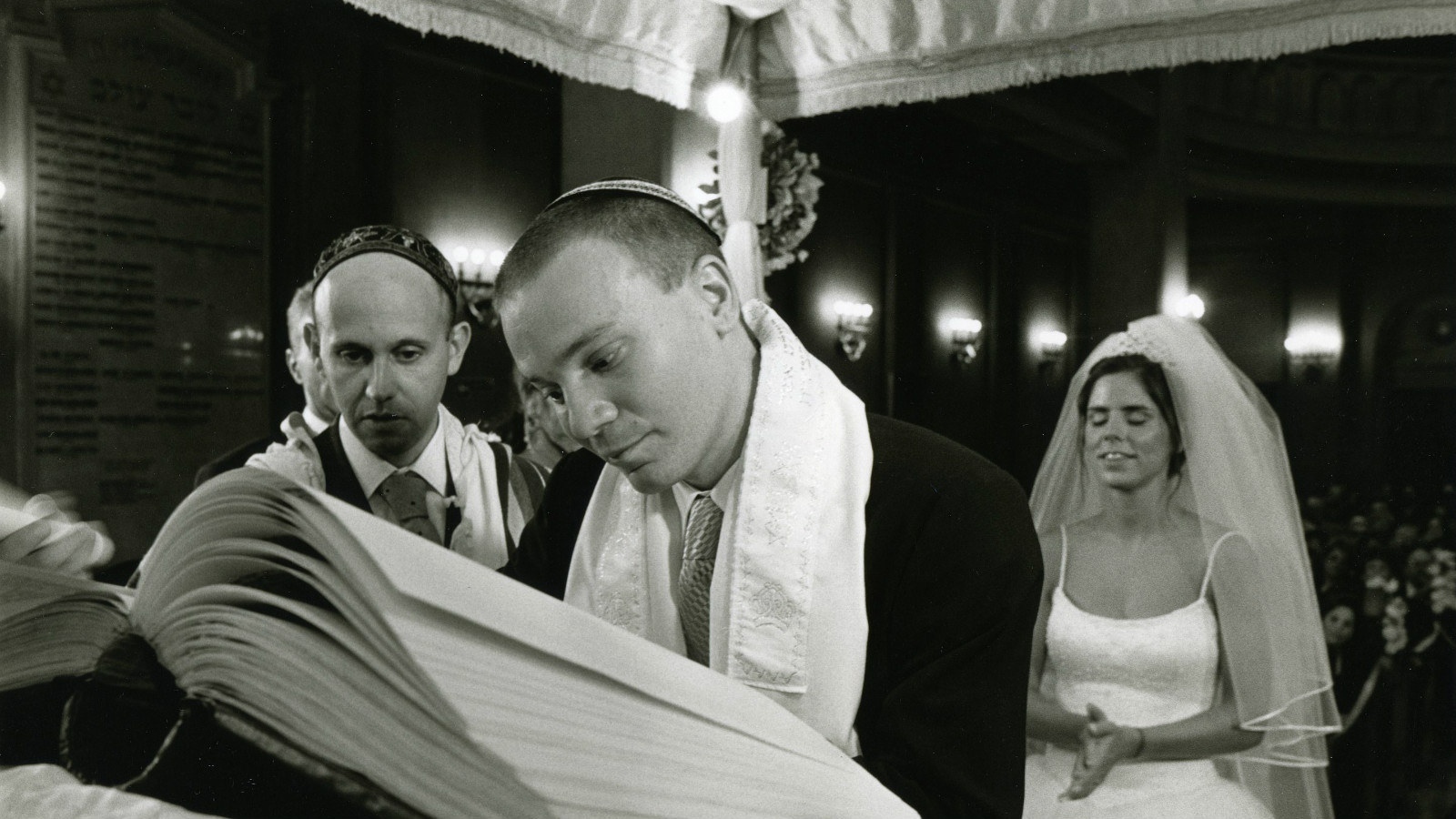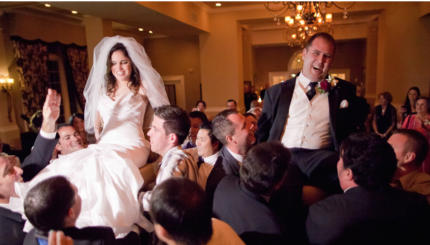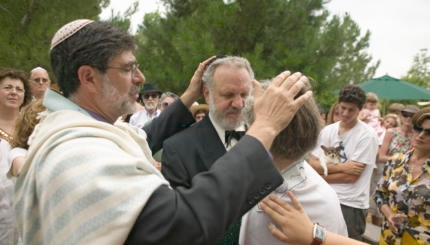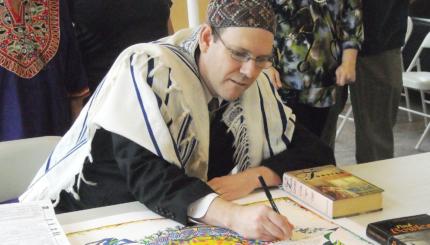According to Jewish law, the requirements for a kosher (proper/legitimate) wedding can be summed up in a few words: a bride accepts an object worth more than a dime from a groom; the groom recites a ritual formula to consecrate the transaction; these actions must be witnessed by two people who are not related to either bride or groom. That’s it.
Are you planning a Jewish wedding? Let us help out! Sign up for Breaking the Glass, an email series that will help guide you to the wedding that’s right for you!
The traditions associated with Jewish weddings — the canopy, the breaking of a glass, the presence of a rabbi, even the seven wedding blessings — are customs. Custom — in Hebrew, minhag — changes over time and differs among cultures, nations and generations; customs can vary wildly from one synagogue or neighborhood to the next.
Customs are not trivial; they are the heart and soul of rituals, and while some have been discarded and forgotten, others persist and carry even more symbolic and emotional weight than some religious requirements. Customs are not set in stone. Over the centuries Jewish weddings have been celebrated with variations in ritual and custom that reflected the needs and values of different times and places.
With your help, My Jewish Learning can provide endless opportunities for learning, connection and discovery.
The nostalgic fallacy that there was once a standard, universal and correct way to do a Jewish wedding ignores differences in everything from clothes to the fact that for centuries some Jews practiced polygamy. Throughout history, Judaism has been a living tradition, examined, debated and reinvented, generation after generation. Jewish weddings are grounded in the past, but they have always been the stuff of the irrepressible present.
Today, communities are scattered, culturally diverse and even virtual. We don’t share a common ritual language, and many of us have never been to a Jewish wedding. Our celebrations are mounted by professionals, whose main focus is on the reception, not what goes on under the huppah (also spelled chuppah). There is a lot of hand-wringing and breast-beating about how this represents a terrible loss. But the truth is, Jews of the 21st century cannot marry the same way their parents did, much less their great-grandparents. The world has changed too much; our expectations of marriage are not the same. To be emotionally and spiritually authentic, our weddings need to synthesize the sum total of our experience, which includes the reality of our daily lives.
To make a wedding that is both authentically Jewish and personally meaningful requires a level of conscious decision making that would have mystified previous generations: Should we use Hebrew words in the wedding invitation? How do we arrange the processional with two sets of divorced parents in the mix? What do we want our ketubah (wedding contract) to say?
How are we going to make our wedding Jewish? How Jewish are we going to make our wedding?
The more numerous the choices, the greater the likelihood of disagreements. The Yiddish proverb “No ketubah was ever signed without an argument” was addressed to family squabbles (still a reality), but it also applies to the friction between tradition and personal style, between a 4,000-year-old system of laws and contemporary values about, among other things, women’s roles. Transforming that heat into light is the challenge of making Jewish tradition your own.
In planning your wedding, I encourage you and your partner to learn, choose and even argue. As rites of passage, weddings clarify and express a lot about the people under the huppah. A wedding is a public announcement and demonstration of who you are as a couple. When you draw on Jewish tradition — borrowing, revising, even rejecting — the tradition becomes yours. And it lives.
Adapted with permission from The Jewish Wedding Now (Simon & Schuster)
minhag
Pronounced: MINN-hahg, Origin: Hebrew, Jewish custom, or group of customs.
chuppah
Pronounced: KHOOP-uh or khoo-PAH, Origin: Hebrew, canopy under which a Jewish wedding ceremony takes place.
ketubah
Pronounced: kuh-TOO-buh, Origin: Hebrew, the Jewish wedding contract.
kosher
Pronounced: KOH-sher, Origin: Hebrew, adhering to kashrut, the traditional Jewish dietary laws.



